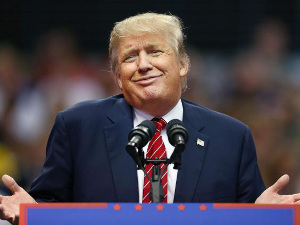Former Lt. Gen. Michael T. Flynn’s term as President Trump’s National Security Adviser came to an end today after less than a month in the position, facing a growing controversy surrounding his denial and later admission to a phone call with the Russia Ambassador regarding the Obama Administration’s sanctions against them.
 Flynn called this shift on the content of the phone call “initially incomplete information” provided to the vice president in his letter of resignation, and praised President Trump for his loyalty. Early reports suggest that Trump had urged Flynn to stay, though later accountings said Trump had asked for his resignation.
Flynn called this shift on the content of the phone call “initially incomplete information” provided to the vice president in his letter of resignation, and praised President Trump for his loyalty. Early reports suggest that Trump had urged Flynn to stay, though later accountings said Trump had asked for his resignation.
The scandal was growing well beyond a simple oversight, however, with the Justice Department having warned the Trump Administration that Flynn was potentially vulnerable to Russian blackmail. This warning came from then-acting Attorney General Sally Yates, who Trump subsequently fired for refusing to try to defend his immigration ban in court.
There are questions about whether or not this means a broader shakeup at the National Security Council as well, with the unprecedented resignation just weeks into Trump’s term giving him a chance to change course if he chooses. There were reports, even before Flynn’s resignation, that there is considerable turmoil on the council.
There was questions at the time of the phone call by Gen. Flynn that it may have technically violated the Logan Act, though the Act has never been enforced, and Flynn’s status as an incoming official made any such violation a minor issue in and of itself.
Lt. Gen. Keith Kellogg, who has been serving as the National Security Council’s Executive Secretary, is said to be the interim National Security Adviser, and he is said by some to be among a handful of early potential candidates for a permanent successor.


